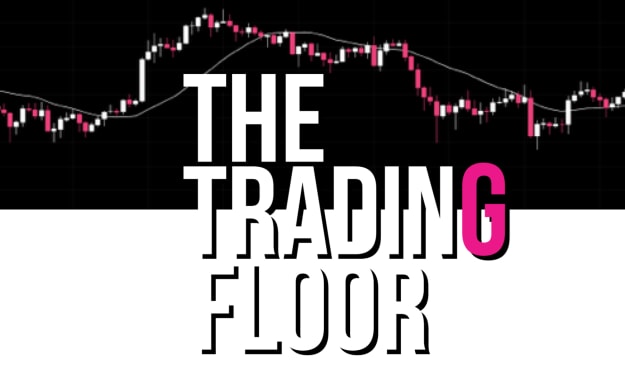Finding the Best High Yield Savings Account (HYSA)
Why Overthinking the Decision Isn't Worth It

See Affiliate Link Note and Disclaimer at end of article
Introduction
If you follow any financial website or Facebook group, there will be 1-4 posts a week on choosing a High Yield Savings Account (HYSA). The request is simple enough—"Which high yield savings account should I pick?"
The problem is two-fold:
- If the person would take the time to search the group, they will find hundreds of posts and answers to help them.
- It really doesn't matter which HYSA you choose.
Let me explain.
STEP ONE: Get away from your traditional bank's savings account
Make the decision to step away from your typical brick-and-mortar bank. The average savings account interest rate is 0.60% (Goldberg, 2024). This means if you had $10,000 sitting in that savings account, you will earn $60 for that year. It is really pathetic if you think about it.
That same bank is probably charging 21% interest for their credit cards. The bank is earning $2,100 on an equivalent $10,000 credit card balance while they are paying out $60. No wonder the banks own all the skyscrapers and stadiums.
In full transparency, I have one of these accounts. It is with JP Morgan Chase. I keep a small balance in this account, which allows me to keep it open without paying a monthly service charge.

My primary savings account is with SoFi and currently has a 4.60% APY (Annual Percentage Yield). If there were $10,000 in this account, it would earn $460 per year.
STEP TWO: Choosing a High Yield Savings Account
Open a HYSA with an institution you feel comfortable with.
My fundamental problem with the question posed above is that it then elicits forty replies that appear to be people jockeying their selected institution over others. It feels like a "pick me" battle when it doesn't matter. The person fighting for their institution does not benefit from the questioner's selection.
There are many sources that will provide a list of HYSA accounts and their current rates. You will see 4.5%, 4.6%, 5.1% and on and on and on.
BankRate.com is an excellent source to start your comparison. Take the time to look at the institutions' requirements. Some will offer promotional rates for the first year, some will require a direct deposit of a certain amount, and some will require several transactions in the first 1-3 months.
Why do I say it doesn't matter which one you pick? Because it doesn't. Pick an institution that you are comfortable with and would have easy access to.
Most people use these accounts for their emergency fund. They will have $1,000 - $10,000 in the account. The rest of their money is in the stock market as a long-term investment in a low-cost index fund where they are hoping to get 7-10% a year.
Let's do the math.
Assume you want to put $5,000 in this high yield savings account as your emergency fund. At 4.5%, you will earn $225 in a 12-month period. At 5.15%, you will earn $257.50 in the same period. Is $32.50 an amount that makes you stress over the type of interest rate you are receiving? I suggest it does not.
Some people may need to put a large cash amount into a savings account for a short period. For example, maybe they sold their home and have $150,000 in cash. They will need access to it in 8 months for a down payment on their new home. Putting the money in the stock market is too risky if there is a temporary downturn, which will then have their money locked up for 1-10 years. A high yield savings account is a great place to store cash in this scenario.
The difference between the 4.5% rate and the 5.15% rate on $150,000 for 8 months is $650 ($5,150 - $4,500; the interest over 8 months). Is $650 a lot of money? Sure it is. It may be worth the time to debate which HYSA institution to use if you are opening a new account.
But if you already have a HYSA, would it be worth opening up another HYSA, transfer your money, and deal with the extra administration of having two HYSAs? I would suggest it isn't worth it. Just use the one you already have.
Summary
If you want a HYSA for an emergency fund, the slight difference in the earnings is insignificant. Just pick an institution you are comfortable with and stop with all the debate and drama. You have bigger priorities, which should include your long-term investment strategies to prepare for your retirement. Check out my article, Investing Made Simple.
Affiliate Links
This article uses an affiliate link for the SoFi refer a friend. I may receive small compensation if you purchase any books from the link.
$25 Referral Link: If you are interested in using SoFi for your HYSA, you can use my referral link which will give you $25 (for new members) when you fund the account with $50. I get $75.
Disclaimer
I am not a certified financial planner, and any financial numbers and strategies are for discussion only. Seek professional advice from accountant and/or professional financial planners. But do NOT use a financial advisor that wants to manage your assets for you (known as Assets Under Management at 1%+). Select a pay by hour or visit only.
Thank You
If you find this piece interesting or helpful, please consider leaving a heart, a comment, or even a tip. Your support means a lot to me as a hobbyist writer. Plus, it helps with the algorithms.
Sources
Goldberg, M. (2024, May 16). What is the average interest rate for savings accounts? Bankrate. https://www.bankrate.com/banking/savings/average-savings-interest-rates/
About the Creator
Stephen Legler
Aspiring author writing first fiction book. I'm passionate to discuss personal finance, religion, tech & occasionally politics. I enjoy reading other people's work & getting to know folks. I play an excellent extrovert. Happy to meet you!






Comments
There are no comments for this story
Be the first to respond and start the conversation.